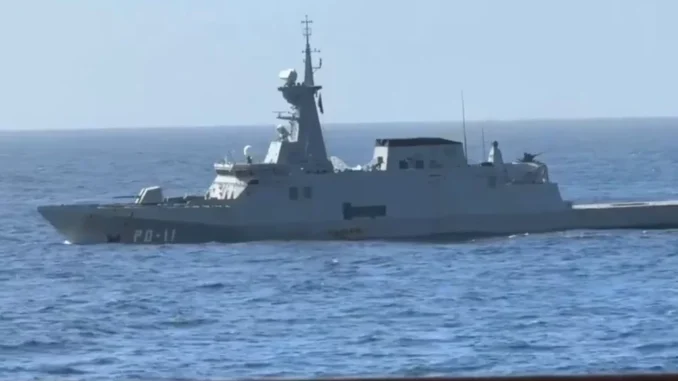
Venezuelan Military Patrols Reignite Tensions with Guyana as Oil Dispute Escalates
Venezuelan Military Patrols Reignite Tensions with Guyana as Oil….The longstanding territorial dispute between Venezuela and Guyana has once again flared up as reports emerge of Venezuelan military patrols near the contested Essequibo region. The patrols have raised concerns about potential escalation, particularly given the resource-rich nature of the territory and recent oil discoveries in Guyanese waters.
Historical Context of the Dispute
The Essequibo region, a vast 160,000-square-kilometer expanse, has been at the center of a diplomatic conflict between Venezuela and Guyana for over a century. The dispute dates back to colonial times, but it gained renewed prominence after Venezuela laid claim to the area in the 1960s, rejecting a 1899 arbitration ruling that had awarded the land to what was then British Guiana. Despite Guyana’s consistent assertion of sovereignty over the region, Venezuela continues to press its claim, often invoking nationalistic rhetoric to justify its stance.
Recent Developments and Military Maneuvers
Tensions between the two nations have escalated in recent years, particularly after the discovery of vast oil reserves by ExxonMobil in Guyanese waters in 2015. Venezuela, facing economic difficulties exacerbated by U.S. sanctions, has sought to reinforce its claims, at times through diplomatic pressure and military posturing.
In the past week, reports surfaced indicating that Venezuelan military units have been conducting patrols close to the Guyanese border, raising alarms in Georgetown. While Venezuela’s government insists that the movements are routine operations aimed at safeguarding national security, Guyana perceives them as a direct threat to its territorial integrity. Guyana’s government has lodged formal complaints with the United Nations and regional organizations, seeking diplomatic support to de-escalate the situation.
International Reactions and Regional Concerns
The international community has been closely monitoring the developments. The United States and the Caribbean Community (CARICOM) have expressed concern over any military activity that could destabilize the region. The Organization of American States (OAS) has urged both nations to resolve their differences through peaceful means, emphasizing the role of the International Court of Justice (ICJ), which is currently handling the dispute.
Brazil, which shares borders with both Venezuela and Guyana, has also expressed concern about rising tensions. Analysts suggest that any military confrontation in the region could disrupt regional stability, potentially impacting trade and security cooperation in South America.
Economic Implications and Strategic Interests
The discovery of oil in Guyana has shifted the geopolitical landscape, with the country emerging as one of the fastest-growing economies in the world. ExxonMobil’s significant investments have transformed Guyana into a key player in the global energy market. For Venezuela, which possesses the world’s largest oil reserves but struggles with economic turmoil, control over the Essequibo region could be a strategic advantage in revitalizing its economy.
The ongoing dispute has also complicated Guyana’s efforts to expand its energy partnerships. Investors remain wary of potential geopolitical risks, despite Guyana’s reassurances that its sovereignty over the region is internationally recognized. If Venezuela intensifies its claims through aggressive means, Guyana could face economic setbacks, particularly if oil companies reconsider their commitments due to security concerns.
Diplomatic Efforts and the Path Forward
Amid the rising tensions, diplomatic channels remain open. The ICJ is expected to rule on the validity of Guyana’s claims in the coming years, though Venezuela has historically dismissed the court’s jurisdiction. Guyanese President Irfaan Ali has called for restraint and adherence to international law, urging Venezuela to respect diplomatic processes rather than resorting to military maneuvers.
Regional organizations, including the OAS and CARICOM, continue to play a mediatory role, advocating for peaceful negotiations. However, the presence of Venezuelan military patrols has heightened fears that the dispute could spiral into a more severe confrontation if not carefully managed.
Conclusion
The renewed tensions between Venezuela and Guyana highlight the complexities of territorial disputes in geopolitically sensitive regions. While diplomatic mechanisms exist to address the conflict, military maneuvers add an element of unpredictability, raising concerns about potential miscalculations. As Guyana solidifies its position as a growing oil power, Venezuela’s actions will remain under intense scrutiny. The coming months will be critical in determining whether the two nations can resolve their differences peacefully or if the dispute will escalate further, impacting not only their bilateral relations but also the broader stability of the region.
Leave a Reply